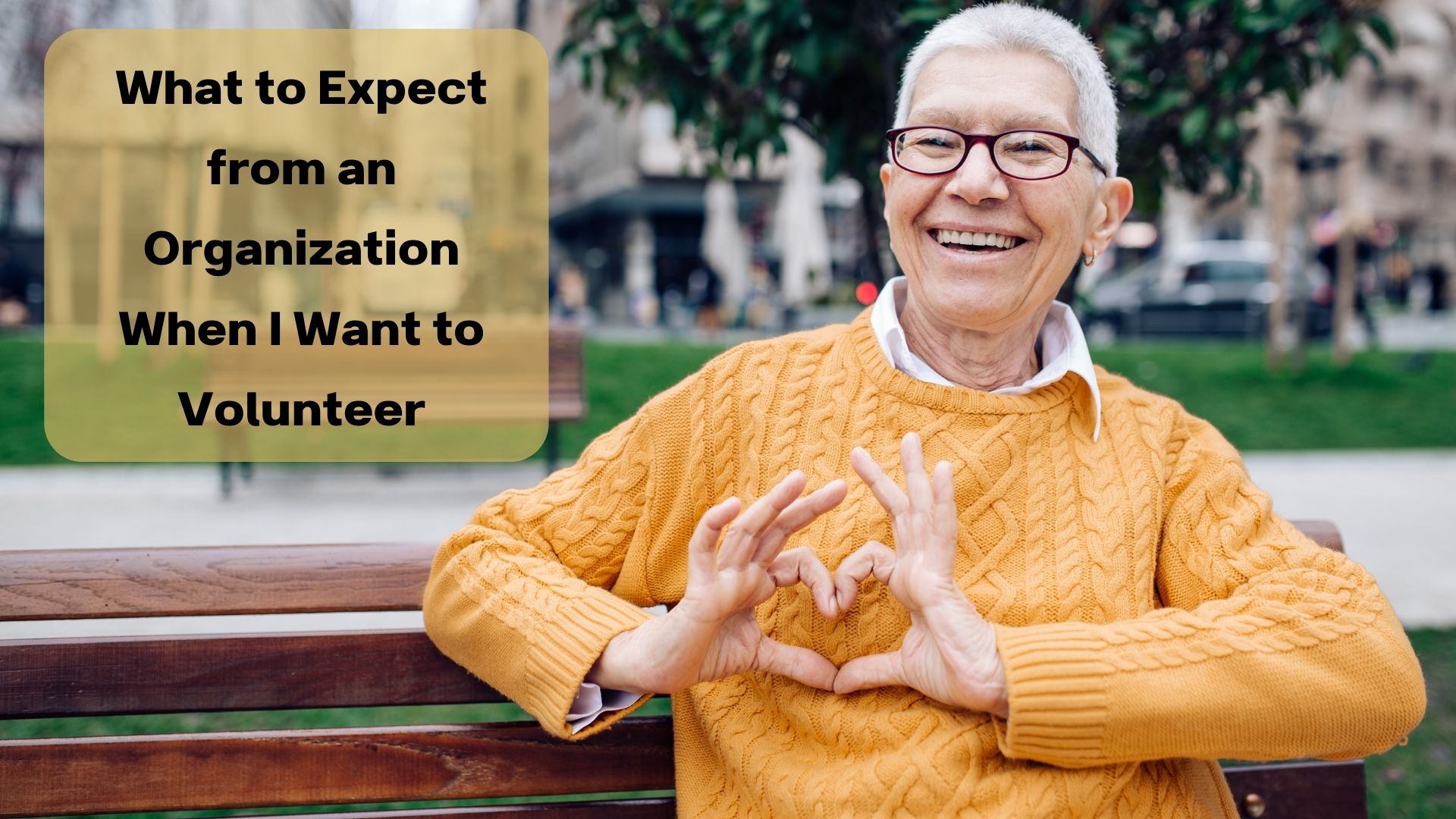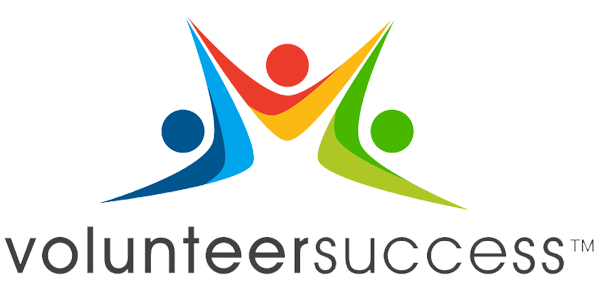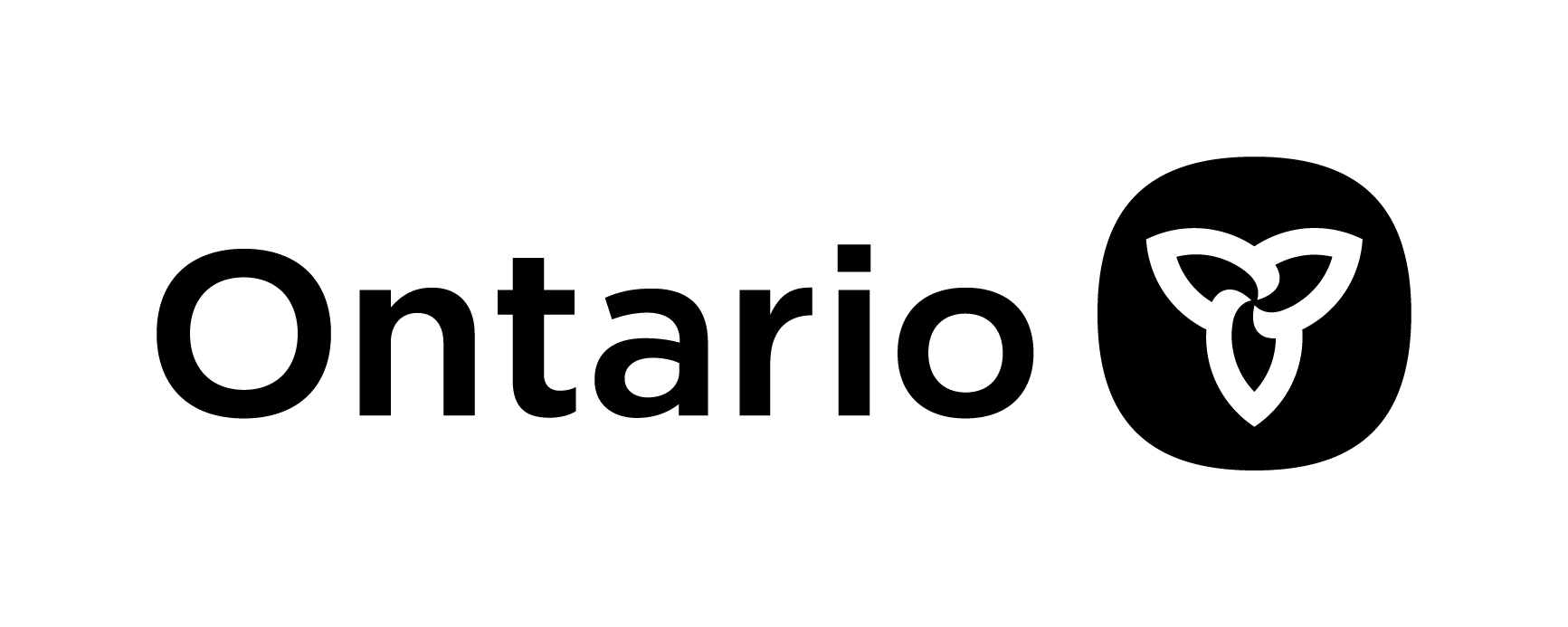

What Can I Expect as an Older Person Who Wants to Volunteer
Volunteering often involves more than just offering or raising your hand to help. Charities and non-profit organizations take care in matching volunteers to opportunities and positions and ensuring a smooth process. This professional approach fulfils important risk management protocols, mandates and best practices and is intended to create a positive experience for all concerned.
Each person who wishes to volunteer has unique expectations and requirements. It’s important to keep in mind your particular requirements and questions related to your volunteering when you approach an organization.
Charities and non-profit organizations usually have at least one person in charge of coordinating or managing their volunteer program. Depending upon how you go about finding out about volunteering, you will either immediately or eventually be in touch with this person or a member of the volunteer resources team. They are there to support prospective and current volunteers. The other people involved with the organization — the paid staff and other volunteers — can also be people to ask questions of related to volunteering but they may not know all the ins and outs.
Non-profit organizations are very busy places, as such, patience is recommended when waiting to hear back from them. But if a couple of weeks have passed, and you are super enthusiastic, then reach out to them again to let them know you are keen.
When you approach a charity or non-profit organization, as a prospective volunteer or when you apply to volunteer, you should anticipate going through several steps.
Four steps you will most likely experience include:
- An Application Process
Most organizations these days ask prospective volunteers to fill in an application. The application could be for a particular volunteer role or a general application for any available role or a role that you offer to the organization.
Completing a formal application gives the organization useful information about you — your skills and experience, and your interests. This will help the organization’s manager of volunteer resources understand how best to use your talents to benefit you and the organization.
It will also allow the organization to communicate with you as they will have your contact information on the application.
The application could be completed on paper or computer. They will guide you through the process.
- An Interview
A volunteer interview can take place in person or over the telephone or virtually (on a computer through a platform like Zoom*).
An interview is a two-way street,
- You will be asked about yourself, your qualifications, experience and your interests.
- You have every opportunity and a right to ask your own questions about the organization, the volunteer position(s) and the responsibilities of volunteers.
- This is a great opportunity to find out about each other and to see if you think this is a good fit for you, just as they are determining if it’s a good fit for them.
- It is also an opportunity to listen to your gut — if an organization or opportunity doesn’t feel right, or it doesn’t seem legitimate, or they are not entirely forthcoming, or they share how understaffed or over-extended they you may want to consider looking elsewhere. In addition, you shouldn’t do anything that would compromise your health or well-being.
Most non-profits will give you information about a role that you are keen on before you need to ask everything about it, but you will no doubt have further questions.
Questions you may wish to ask in your interview:
- Can I see the volunteer position description that explains my role in detail?
- What is the time commitment?
- What will I be doing?
- What skills and abilities can I put to good use?
- Can I learn new skill and abilities?
- What are the benefits to me?
- How often do I volunteer?
- What are the hours of my role? Could I choose my own time frame?
- Where will I be volunteering — at this/your site or another?
- What kind of orientation and/or training will I receive?
- Will I receive an orientation before or after I become a volunteer?
- Who will supervise and support my engagement?
- Who can I ask questions of while volunteering?
- Do you have staff who speak my primary language?
- Do I need to wear a mask?
- What if I am injured while volunteering?
- Could I take a rest break if and when needed?
- Is there a bathroom nearby?
- If they don’t ask you what you require in order to volunteer, which they should, you can ask: Is the place that I will be volunteering fully accessible**?
- Can the organization accommodate** me and my physical needs?
- If I need to sit or stand while volunteering can that be accommodated?
- Do I need to wear a special outfit/uniform/vest while volunteering?
- Are there any associated costs*** to me volunteering with you?
- How many other volunteers will I be working with?
- Will you do a background check on me? What does that involve? Who pays for it?
- Is my contact information kept private or shared with other staff?
- What happens if I have a problem with my supervisor, staff or other volunteers?
- Can I apply for a job if one is available? Will my volunteering here help me get one?
- Can I receive a reference from you?
- Will I receive any feedback on my volunteering?
- Do you cover mileage or transit costs?
- Do you provide meals to volunteers?
- Are there any risks associated with my volunteering?
- Do I need to provide a record of vaccines like TB or COVID to volunteer?
- Are your volunteers covered by your organizations insurance policy?
- Would I be trained in WHMIS (Workplace Hazardous Materials Information System)?
- What is your organization’s workplace safety policy?
- Are there other policies I should know about? How would I access them?
- Are there volunteers who would be willing to talk with me about their experience?
- Who would I ask questions of or report an unsafe working condition to?
- Is it okay to cancel if the weather is bad?
- Who do I contact if I need to take a day off?
- Who do I contact if I can’t make it one day due to unforeseen circumstances?
- How much time do I need to give if I can’t make it in?
- Would I replace myself with another volunteer if I have to cancel a shift or who does this?
- Will I be able to resume volunteering if I am going away for a period of time?
- Will I have a safe place to secure my belongings while volunteering?
- Are there opportunities to switch volunteer roles if I desire or if I’m unhappy in this role?
- Can volunteers attend educational and special events usually for staff?
- Am I allowed to be friends with staff and other volunteers through social media?
- Is there anything I can read to learn more about your organization?
- How long do I have to wait before I can begin volunteering?
- Can I contact you to ask further questions after the interview is over?
At this point you can share any accommodations you may need to perform your volunteer role (e.g.: I require an accessible building in which to volunteer; I need an ergonomic work station; I will need a place to sit down while performing my duties; I require a quiet work-space in order to hear well).
We suggest you write down any questions you may have before your interview, so you are prepared.
- Screening
The interview is a part of the screening process, but you can also expect to be asked for character or work references and to have those references checked.
Your references could be current or former colleagues or supervisor, peers — people who know you well. Some organizations allow for one family member as a reference.
It is a good idea to have the names and contact information for three references ready to provide to the organization. And it is a good idea to alert your references ahead of time that the organization will be contacting them. If you are having trouble thinking about who could be a reference for you, talk with your interviewer, they will offer ideas for you to think about.
Depending on the organization and the nature of the volunteer position you are seeking, you may be asked to do a police records check as well. The interviewer will guide you through this process.
Some people may feel offended by screening measures; however, it is important to remember that this professional approach is intended to ensure the wellbeing of all concerned. In addition, screening is often a prudent part of organizations’ policies.
- Orientation and Training
Orientation and training ensure that volunteers have a thorough understanding of the organization, the volunteer role, the program, and people with whom you are volunteering.
Orientation and training also ensure you have the information and preparation you need to undertake your volunteer responsibilities. If you don’t feel you are prepared enough, it is important to ask questions and ask for more clarity. You have every right to expect to be well prepared to volunteer.
Your orientation and training may only involve you but in some cases a group orientation is performed to save time and resources. In some organizations, additional training is provided at regular intervals, which allows you to broaden and deepen your understanding of the specific area of activity that you have chosen and allows for more learning in particular or broader areas of knowledge.
Please remember that volunteering today often involves more than just stepping forward or and saying yes to volunteering.
Risk management at all levels is an important part of charities and non-profit organizations. They are beholden to assess, manage and/or mitigate potential risks. These organizations take seriously the safety and wellbeing of all concerned — clients (some of whom are vulnerable), volunteers, the community, staff and the organization — and this is a good thing. As such, volunteers do go through various steps prior to volunteering with most organizations.
A good place to go, after you read this article, is our self-assessment checklist found in our article “Not Sure Where to Begin?” found HERE. ADD LINK This tool will help you narrow down your unique volunteer questions and requirements.
For more on what questions you may want to ask, we recommend you check out our article, “What to Ask an Organization Before Volunteering” HERE. ADD LINK
Another article you may find helpful is our
* See our article, “How do I use Zoom?” found HERE.
**See our article, “What is Accessibility?” found HERE.
***See our article, “Will it Cost Me Money to Volunteer?” found HERE.


